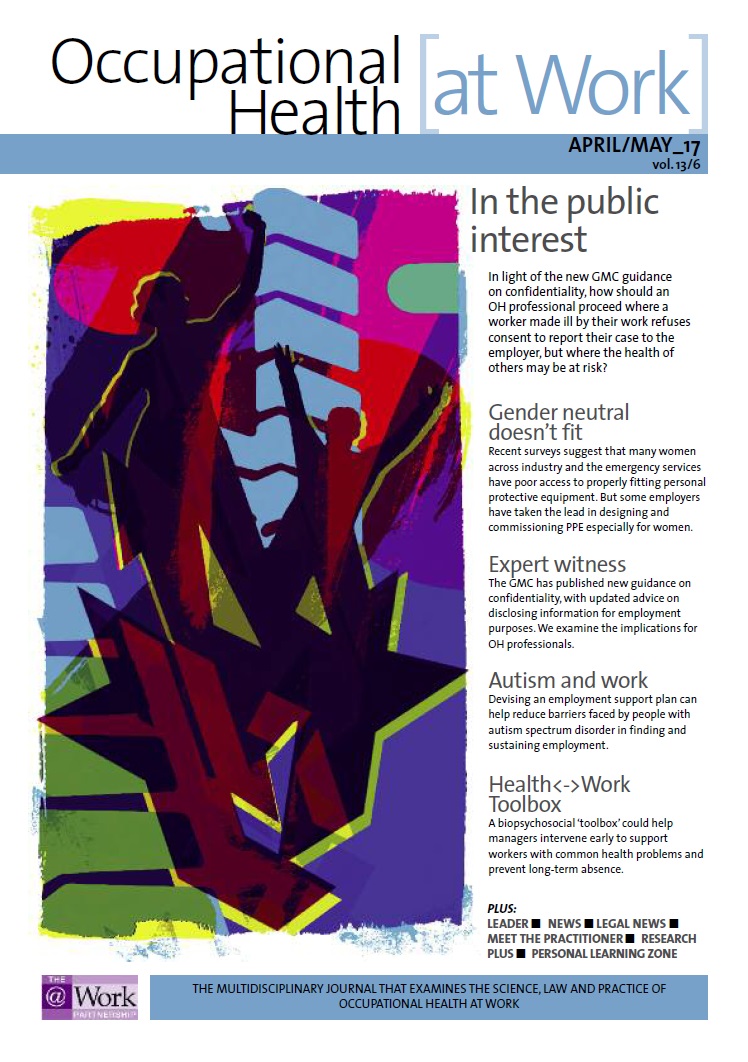April/May 2017 (vol. 13/6)
ContentsFeaturesNewsLegal
NewsResearch DigestResearch PlusCPD
Research Plus
Work factors associated with poor mental health
There is moderate-strength evidence that high job demands, low job control, high effort–reward imbalance, low relational justice, low procedural justice, role stress, bullying and low social support in the workplace are associated with a greater risk of developing common mental health problems, according to a systematic metareview (a systematic review of reviews). However, the evidence does not allow definite conclusions on causality. There was weaker evidence that organisational change (including downsizing, relocation and mergers), job insecurity, temporary employment status and atypical working hours are also associated with poor mental health, and better-quality evidence is needed to establish if they are independent risk factors. The authors propose a ‘unifying model’ of three overlapping ‘clusters’ of interacting workplace risk factors – imbalanced job design, occupational uncertainty and lack of value and respect in the workplace. They also suggest that work-related factors interact with individual characteristics (such as coping styles and attitudes) to increase the risk of poor mental health outcomes. The review included seven moderate-quality systematic reviews, which together assessed 213 primary research papers, and 30 low-quality reviews.
Occupational and Environmental Medicine 2017; doi:10.1136/oemed-2016-104015.
Occupational Health at Work April/May 2017 (vol. 13/6) pp39



